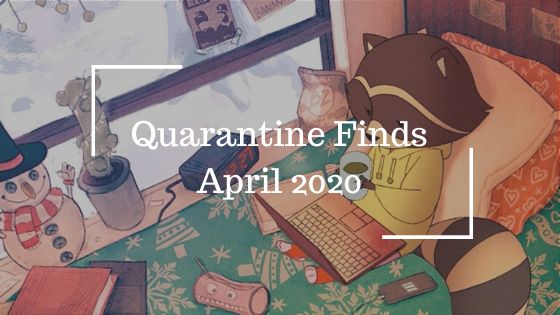The Thing About People Pleasers
- Camille Belcon
- Jun 26, 2021
- 4 min read
Updated: Jan 2, 2025

Now a lot of us have an interest in maintaining amicable relationships, even if only for the ways it serves our wants and needs. With people pleasers (PEPL), it is their default setting in the majority of interactions. There is no stopping to consider the variables in every unique exchange. No thought given to the agendas of the people around them. No investment in setting up and enforcing boundaries. All because of a crippling fear of rejection.
I imagine PEPL must feel like they have never been sure or secure in the affections of their family or caretakers in childhood, perhaps internalising that tolerance was the most you hope for, to get people to keep you around. And what do you do to increase your chances of being tolerated? You make yourself as likeable as possible and make as few waves as possible. You show the belly and expose the jugular, "See how friendly I am? See how harmless I am? Let's be friends! Don't hurt me."
I didn't always think of myself as a people pleaser - I mentally framed myself as likeable, low maintenance and non-confrontational. In essence, I made myself "easy to love" (read tolerate). Within the past year, I had to learn the lesson that all people-pleasing earns you is the title of doormat. People may be pleasant to you but you're not building real relationships. You're building a habit of subservience. You've heard"We teach others how to treat us." right? PEPL's teach others that we won't correct them, we won't stand up for ourselves and that we fear their disappointment/ anger/ rejection.
The thing is, you then have to admit to yourself that you carry that fear and anxiety around and that it probably colours all your interpersonal encounters. For some, this may be an easy soul confession but I can admit that my ego was reluctant to let me see that part of myself for what it was.
When you finally acknowledge that you are operating out of fear and that your confidence is a façade, you begin the work of looking for the root of those fears. I think a lot of human fear is based on wanting to feel loved and to feel secure in the knowledge that you are loved, despite faults or shortcomings. The fear of rejection, the fear that you may not be lovable, makes you kowtow all the harder to prove yourself to those around you, in the hopes that they'll keep you around - note, that this is different from trying to prove your competency to gain trust and collaboration, either personally and professionally. A PEPL ultimately doesn't care about group dynamics or the respect of their peers, instead, simply desiring to not be targeted or ostracised.
When you are always on the lookout to make sure you react in the most pleasing manner, in every situation, you end up diminishing and minimizing yourself, your personhood, as you continually subvert your wants, opinions and aspirations to whatever other people want. As a result, PEPL's can find themselves with the inability to enforce agency over their lives.
If that wasn't enough, PEPL can find it hard to feel connected to their environment and those around them, despite obsessing over the fact that they want to feel a sense of connection in their lives. The feeling of not being attached may be attributed to the fact that a PEPL didn't choose that which now surrounds them. Their fear of abandonment and rejection had them nodding and shuffling along the path of least resistance, until, and maybe not ever, they waken to find themselves in a world they had no hand in making.
People-pleasing is an unhealthy skew on a very human trait to get-along-to-get-by.
If you've gotten to the stage where you can admit this trait to yourself and you decide that you don't want to carry it anymore, you'll probably find that your boundaries are tissue-thin, if existent at all. "What are my boundaries?" you ask yourself, "What am I willing to stand for? And against?"
When I realised that the answers didn't just trip off my tongue, I sat down with my journal, wrote the definition of values and principles at the top of the page and then explored and named some core values and what they mean to me. From that sprung the question "What am I worth?". I answered that too.
I've found that in answering these questions, I'm erecting the fence rails for how I will react in a given situation. And that's not to say that, from that moment I became a different person, but rather, in my overall pursuit to be present and conscious in my life, that I have these guides to refer to when alternatively, I'd just want to back down and accept whatever was handed to me.
Now I said fence rails but you know I'm saying boundaries right? Now that your actions can be guided, boundaries also serve to let you know what can or cannot be prioritised. In this way, we hope to build the habit of acting consciously, instead of passively allowing life to wash over us. The caveat though, You'll have to be willing and have the will to actively not be a people pleaser - it means:
No more checking out of your own feelings to reduce dissonance.
Active engagement in practising your values.
Regular recall of the fact that you are allowed to take up space.
Believing that you can trust yourself.
...and letting go of whatever other self-binding beliefs you have about yourself
Facing yourself and admitting you operate from a place of fear and low self-worth is drastically more painful than labelling yourself as just "helpful" and "non-confrontational". However, if you can endure the self-confession, the subsequent discomfort of enforcing boundaries and saying "No." becomes tolerable. As does the idea of: not everyone liking you; not being reliant on the good favour of others or knowing you can count on yourself. What then becomes enticing, is finding out what pleases you.
If you want to take the time to name your values and principles, I've knocked up a printable that you can use. Once you have them, I suggest reviewing them daily so they can become a part of your daily decision making and a tool for keeping you conscious.
Identifying core values and principles worksheet.
Any thoughts on why people pleasers are the way they are or how we can stop? I'd love to hear it.








Comments